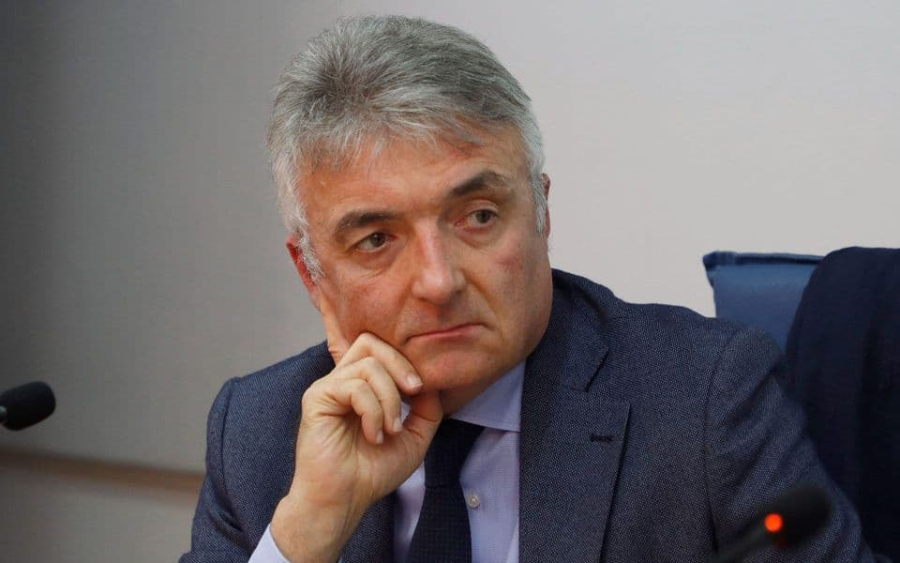The arrest of the former Chief Special Prosecutor of Montenegro (GST) Milivoje Katnić is an event that carries multiple meanings and has political and security connotations and consequences.
Katnić’s arrest completed the list of people who participated in the prosecution of those accused of participating in the 2016 coup attempt. The first-instance verdict, which clearly incriminated the main participants in that affair – Andrija Mandić, president of the New Serbian Democracy (Chetnik duke and current president of the Parliament of Montenegro) and Milan Knežević, president of the Democratic People’s Party – was later, due to technical errors (according to some testimonies – not accidental at all) overturned at the second-instance court.
This is also the finale of a long-term orchestrated campaign, which stigmatized and disavowed state institutions and people involved in the court proceedings, but also more broadly – all political forces and individuals who opposed Greater Serbia’s politics and Russian influence in Montenegro. The protagonists of that event from eight years ago, behind which, according to all information from American and British intelligence circles, stands the Russian GRU, are now an influential part of the ruling coalition in Montenegro. Their definitive anti-Western and anti-NATO, i.e. pro-Serbian and pro-Russian stance is the backbone of their ideology and politics. That is why their resistance to the Montenegrin recognition of Kosovo is logical, and their disagreement with Montenegrin state sovereignty and independence is implicit. The closeness and, in many segments, dependence on the Church of Serbia also does not need to be explained additionally.
Three levels of problems arise in particular when it comes to the deprivation of liberty of former GST Katnić.
The formal (presumed) indictment, i.e. the immediate cause/excuse for his arrest is, according to all information, Katnić’s connection with the allegedly illegal entry into Montenegro, a few years ago, of two leading men of the Serbian underground. How well-founded is this suspicion, i.e. whether it can become an indictment, a professional and impartial investigation should show. Commentators have already pointed out that these are jobs and tasks within the scope of work and powers of the Police, not the Prosecution, and that the whole case is far from clear. But we have to wait for the formal indictment – if there is one at all – and only then can it be clear whether and for what Katnić will be formally accused.
The second level of the story is much more important. The real reason for the entire operation can also be hidden in it. Exalted and revanchist reactions from the ruling political circles and the media and “experts” close to them point to such a conclusion, among which certain “journalists” stand out – whose names are very often mentioned in the intercepted SKY communications of members of organized criminal groups in Montenegro, as well as some representatives of the civic / “civic” sector, who triumphantly already judge Milivoj Katnić, as the alleged highest representative of criminalized state institutions.
In this sense, the very arrest of the former GST and his handcuffed photos achieve the central goal: the propaganda compromise of everything that this man – atypical in many ways and undoubtedly brave person – did in his career. And especially, i.e. – essentially – that he filed the indictment against Mandić and Knežević. That’s how defamation Mr. Katnić is actually a key element of the intention/project to eliminate reason from the 2016 coup d’état case, make a mockery of it and finally overthrow it, so that its protagonists are freed from uncertainty and fear in anticipation of a repeated trial.
That’s how defamation Mr. Katnić is actually a key element of the intention/project to make sense of the 2016 coup d’état case, make a mockery of it and finally overthrow it, so that its protagonists are freed from uncertainty and fear in anticipation of a repeated trial. A kind of retouching of (recent) history – the erasure of the coup attempt and the release of those incriminated, with clear political and security consequences – is the core of what is happening. That is why the chorus of “dealing with crime” was so strongly promoted from the same addresses that were key in what was ended in August 2020 parliamentary elections. The failure of 2016 was transformed into a “people’s victory” in 2020, with different tactics and different means, and that victory, four years later, received its finalization in the realization of those interests and goals that were not reached in 2016.
The third, final, dimension of the whole event is clear: to definitely compromise the state and political leadership and their achievements (primarily the return of Montenegrin state independence, but also membership in NATO). The ultimate goal is also looming, for which Serbian-Russian propagandists and special forces are already preparing the ground: the arrest of Milo Đukanović. That’s why it is slipped between the lines, in texts with titles and messages that “the circle is narrowing” and with illustrations showing Đukanović in the background… That would be an introduction into the final reckoning with the postulates of a civil, secular, sovereign and independent Montenegro. Indicators of the general collapse of those values and achievements are ubiquitous and cannot be ignored, even for the purposes of super-optimistic intentions that Montenegro, despite all the regressions and involutions in the last four years, will make decisive strides in the context of future EU membership.
If there can be any hesitation or doubt about that – the ultimate goal of revanchist politics – then it is quite clear that the entire operation to arrest Milivoj Katnić essentially serves to dissuade, intimidate, marginalize and silence oppositional and critical thinking and action in Montenegro. In this regard, the success of the infiltrators and those who ordered the arrest of the former GST cannot be disputed.
In the meantime, Montenegro, in the context of the European agenda, according to many sources, expects to receive an IBAR (Interim Benchmarks Assessment Report) in the summer, which concerns the rule of law itself.
It is almost tragicomic that the rule of law, and even in the context of fulfilling European criteria and standards, can be promoted by its crudest anti-thesis. Harassment and lynching threaten to wipe out the very presumption of innocence from public discourse. And it is a European standard, so it cannot and must not stop being a Montenegrin one.
The articles published in the “Opinions” column reflect the personal opinion of the author and may not coincide with the position of the Center
Miodrag Vlahović. Montenegrin politician and former diplomat. The first Minister of Foreign Affairs of Montenegro. Former Montenegro’s Ambassador to the USA, Canada, Iceland, Holy See, Order of Malta.




